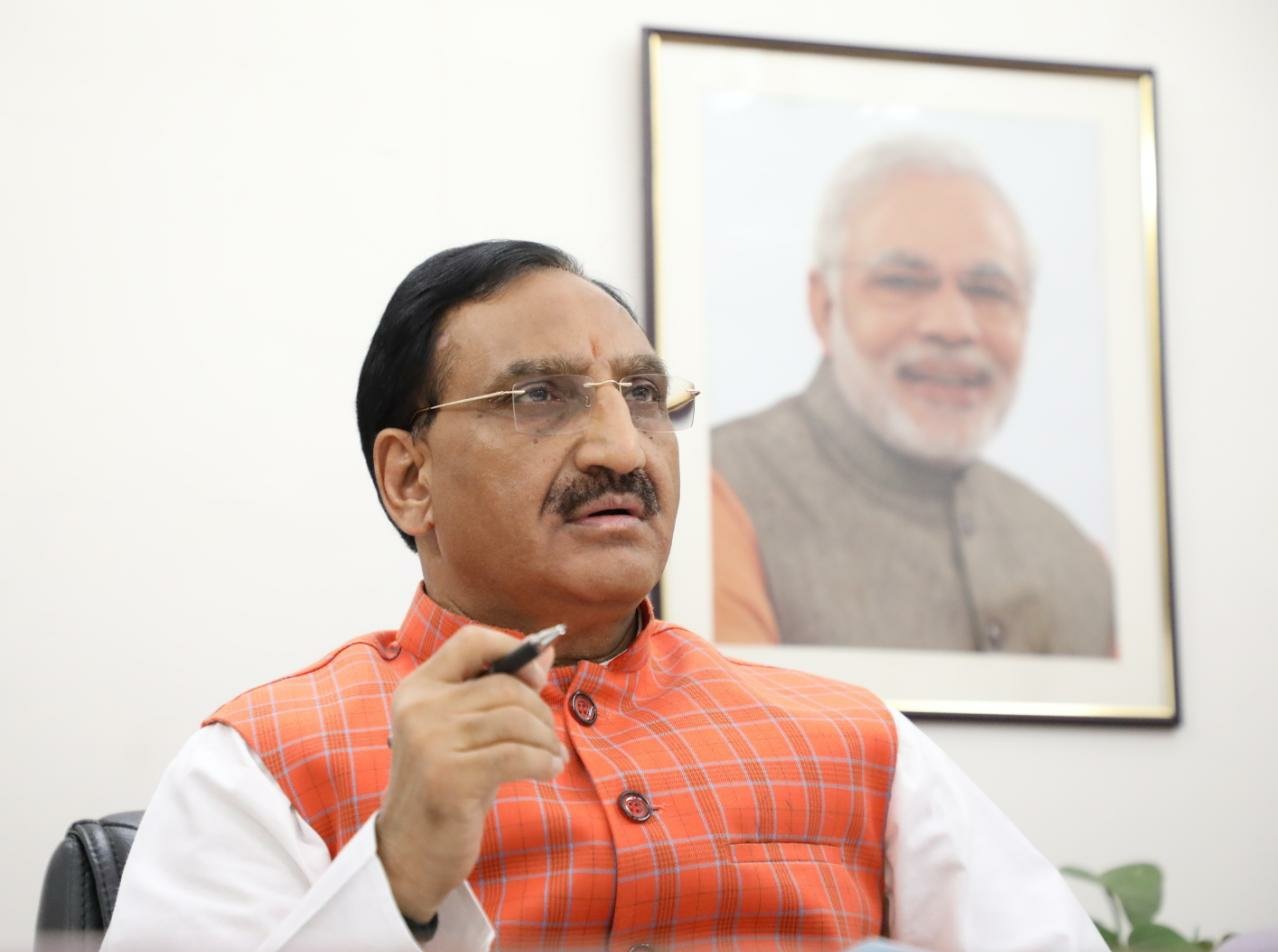Literacy is an accelerator of development enabling individuals to access and avail economic, political and social benefits says Education Minister
New Delhi: The National level function to celebrate 54th International Literacy Day was organized by Ministry of Education here today through online mode. Shri Ramesh Pokhriyal ‘Nishank’, Union Minister of Education was the Chief Guest on this occasion. Minister of State for Education, Shri Sanjay Dhotre was Guest of Honour the occasion. The Message of Director General, UNESCO was read by UNESCO Representative on the occasion. Secretary, Department of School Education and Literacy Smt Anita Karwal and senior officials of the Ministry were also present on the occasion.
International Literacy Day Celebration 2020 included a talk on ‘Literacy teaching and learning in the COVID-19 crisis and beyond’ by Prof. J.P. Dubey, Department of Adult, Continuing Education and Extension, University of Delhi to determine the future course of action which needs to be taken to eradicate scourge of illiteracy in the country.
Speaking on the occasion Shri Pokhriyal said that Literacy is the first step in every individual’s life in the endless journey of acquiring knowledge and enlightenment through formal ways. The Minister said that every human being in this civilised world has the right to be literate. It opens up new vistas of development of humanism where an individual can transform into a noble soul with dignity and self-respect. Literacy is an accelerator of development enabling individuals to access and avail economic, political and social benefits not only to empower themselves to lead a quality life, but also to contribute towards national and international development. In a broader perspective, literacy is a vital means to realise the goals of national progress, universal brotherhood and sustainable development.
The Minister further said International Literacy Day is an occasion for the nations all over the world to reaffirm their commitment and resolve to eradicate illiteracy. It is a moment to consolidate the gains made in the area of literacy, share and learn from National and International experiences, build cooperation among stakeholders, and raise public awareness about the significance of literacy.
The Minister informed that this year’s International Literacy Day 2020 focuses on ‘Literacy teaching and Learning in the COVID-19 crisis and beyond’ especially on the role of educators and changing pedagogies. The theme highlights literacy learning in a lifelong learning perspective, and therefore, it mainly focuses on youths and adults. ILD, 2020 provides an opportunity to reflect on and discuss how innovative and effective pedagogies and teaching methodologies can be used in youth and adult literacy programmes to face the pandemic and beyond.
Ministry of Education has made efforts for eradication of illiteracy in the country over the years resulting in achieving substantial progress towards improving access to adult education and learning but still India has a sizeable number of illiterates which have to be literate in attaining a target of achieving 100% literacy before the target year 2030.
Shri Pokhriyal called upon all stakeholders including State Governments, Civil Society Organizations, Corporate Bodies, intelligentsia and my fellow citizens to join hands in transforming India to a fully literate society making our country Saakshar Bharat-Aatmanirbhar Bharat.
While addressing the participants ShriDhotre said that the Father of the Nation, Mahatma Gandhi once observed, “Illiteracy is a sin and shame and must be eradicated”.He further said that literacy can play an important role of empowering, transforming and improving quality of life of individuals as well as society, especially women and those belonging to disadvantaged groups of society. He added that that there is an urgent need to focus attention ensuring that everyone is brought into the fold of literacy and formal education to catch up so that we can move faster towards the national goal.
Shri Dhotre emphasized that literacy need not be viewed as an end in itself. This is particularly relevant to our country as large part of our population is under 35 years of age. This young population, entering into world of work without adequate levels of education and vocational skills will prevent us from taking full advantage of demographic dividend. We have to think how the youth can be brought into the ambit of education and lifelong learning.
ShriDhotre called upon all stakeholders to join hands and strive till the goal of transforming India into a literate and sustainable society is achieved. He wished all success to all the participating organizations in their endeavour to achieve total literacy.
Background
International Literacy Day (ILD) is celebrated on 8th September every year all over the world. The celebration of ILD started following a recommendation of the World Conference of Ministers of Education on the Eradication of Illiteracy which met in Tehran in September 1965. The Conference recommended that 8th September, the date of the inauguration of the Conference, be proclaimed International Literacy Day and be observed world-wide. UNESCO in 14th Session of its General Conference held in Paris in November 1966, formally proclaimed 8th September as International Literacy Day. Since then, UNESCO has celebrated International Literacy Day with the aim to sensitize and mobilize international public opinion and to elicit their interest and active support for literacy activities – one of UNESCO’s major pre-occupations.
In India, literacy and particularly Adult literacy has been a national priority since independence. With a view to eradicate illiteracy and impart functional literacy and lifelong education to adult education, National Literacy Mission was launched by Government of India in 1988. Since then, India has been celebrating International Literacy Day on 8th September to reaffirm its national commitment to achieve goal and objectives of literacy and express solidarity with international community in its efforts to eradicate illiteracy.

